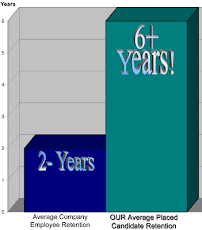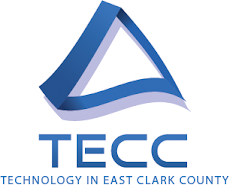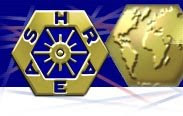
When I started out in the search business, it became quickly apparent that most managers weren't great at interviewing. For one thing, I always thought my candidates were great, and they didn't
Part of this difference of opinion was due to a lack of understanding of what the real job entailed, lack of any rigorous assessment process, and a desire for many to take short cuts, waiting for the "perfect" candidate to arrive. In this case, unanimity of perceptions substituted for evidence and logic. In the bargain, many great candidates were excluded for bad reasons.
After studying the problem, I noticed that there were four basic personality styles that seemed to be at the crux of the matter and predicted exactly how the person would come to an incorrect conclusion. From this a simple DISC-like assessment was developed that described how the errors were caused and what could be done to eliminate them. This technique is pictured in the accompanying graphic and described below.
The horizontal axis represents the speed of decision making - fast and instinctive on the right, slow and deliberate on the left. Those on the right prefer to make fast decisions with limited data. Those on the left are more cautious and would rather ponder a bit, collecting as much information as possible before deciding. Plot yourself on this decision-making axis, based on your preferred mix of facts and speed.
The vertical axis represents a focus on people or results. Those who are very people-oriented are less concerned with getting things done on time and on budget. They'll tend to let things slide to ensure that everyone is okay. Those who are extremely results-focused will be less concerned with the needs of the people involved. They'll tend to push for results, even if it upsets some of those involved. Plot yourself on this vertical axis based on whether your emphasis is on people or their performance.
Based on where you've plotted yourself on these two dimensions, you fall clearly into one of the four style quadrants, or more in the middle - the coaching style. Following is a quick summary of these styles and how they affect a person's decision-making process when interviewing and evaluating candidates:
Director Style. These people are the hard-chargers, dominant, and fast-paced. They are less sensitive to the needs of others, with delivering results as their high number one priority. During the interview they over-value their intuition and tend to like people who are assertive, strong communicators, and those who seem to have high potential based on a strong intellect. They'll assess the person's achievements at a high level, but won't spend too much time digging into the person's background to validate their quickly-drawn conclusions. While they hire a lot of hard-charging smart people, many of them aren't great at managing people or delivering results on a consistent basis.
Analytical Style. This group is comprised largely of technical people - detail-oriented, cautious, methodical, and conservative in their decision making. They tend to over-emphasize technical competency and experience when assessing candidates. Their conservative nature protects them from hiring technically weak people, but they overlook the person's potential, ability to collaborate with others, and how they plan and organize their work properly.
Diplomat Style. This group is HR-centric - those who proudly profess to be people-persons. They believe their role during the interview is to judge "fit" and the so-called "soft skills." They emphasize team skills, personal likeability, and look for clues as to whether the person has the flexibility to meet the cultural norms of the company. Unless the person is the hiring manager, their vote is often less valued, since it's based more on feelings, rather than objective evidence regarding team skills. The people they hire get along with everyone, collaborate well, and don't upset the apple cart, but sometimes don't get much done.
Influencer Style. This is the classic sales personality or politico type. This is the group that makes instant judgments in a few minutes based on first impressions. If the candidate looks good, sounds good, is confident and reasonably competent, it's a sure-fire hire. On the other hand, if the candidate is a bit nervous, less than ideally groomed, late, or is slightly maladroit or geeky, it's into the reject pile faster than greased lightning. While the people these types of managers hire are fun at parties, their on-the-job performance is problematic, since the initial hiring decision making was more superficial than substantive.
Coaching Style. This is the person who's pretty much in the middle on both axes. This is also the ideal interviewing style using rational thought, objectivity, and evidence to make the hiring decision. When evaluating candidates, a coaching style manager considers results, past performance, technical competency, team skills, leadership ability, and decision making in proper balance based on the real requirements of the job. The person will objectively consider their first impression, but not be unduly affected by it early on.
Adopting a coaching style, even if temporary, is one way to increase assessment accuracy. The key to achieving this is to overcome your natural style by adopting the best traits of everyone else, especially your polar or diagonal opposite. Here's some specific advice on how to do this:
Directors Becoming Diplomats. You need to slow down, get more facts and details, and focus on the process of achieving results, with special emphasis on collaborating with others. This includes developing and supporting team members, working with other departments, and understanding how the person handles conflict.
Analyticals Becoming Influencers. Speed up your decision making and broaden your selection criteria. Focus more on what a person has accomplished with their technical skills, rather than the absolute level. Consider how the person manages, plans, and organizes work, and whether it gets done consistently on time. Dig deep into team skills, especially how the person collaborates on cross-functional projects.
Diplomats Becoming Directors. Don't worry so much about team skills and personality fit, but rather how the person used these skills to get results. Draw org charts, get names, find out how the person developed others, who was mentored and how, and if the candidate was mentored. Get facts, dates, and specific examples to demonstrate conclusively that the person is a leader and strong collaborator. Be sure to find out the type of work the person has excelled at and what motivated the person to perform at peak levels.
Influencers Becoming Analyticals. This will be very hard for you, but you must delay any yes/no decision for at least 30 minutes. In fact, be sure to measure first impression at the end of the interview. To do this, have a list of prepared questions focusing mainly on performance and results. (Try these to get started.) Go slow and dig deep, step by step, so you understand exactly how the person accomplished the results and how the person made their biggest decisions. This will give you the evidence you need to make an accurate assessment. You'll probably discover that many of the people with great first impressions were marginal performers and some of those with average first impressions are pretty good. You might even hire some.
Of course, making this personality shift is easier said than done. As a recruiter, I had to forcefully intervene to pull most of this off. Here are some of the ideas to help you here:
1. Lead panel interviews with clients. Panel interviews help since the personality of the individual interviewers is defused. A competent leader can also control the types of questions being asked to ensure that everyone on the team obtains the information they need to make an accurate assessment.
2. Train managers to dig deep into accomplishments. This is how the two-question performance-based interview was developed. The questions are based on digging deep into the candidate's accomplishment most directly related to real job needs. This simple tool gives managers something other than intuition to make their assessments.
3. Stop using a yes/no voting system and implement an evidence-based decision-making process instead. Adding up a bunch of yes/no votes accentuates the personality style problem. To minimize this, considering using our evidence-based assessment process based on the 10-Factor Candidate Assessment template. Narrowing each interviewer's focus and requiring that specific evidence by justified and shared, forces the person to adopt a balanced interviewing style.
Of course, there's a bit more to making accurate, better hiring decisions than what's described here. But from what I've seen, if you can't overcome the interviewer's natural error-inducing personality style from the get-go, nothing else will help much.
By Lou Adler, March 4, 2009














No comments:
Post a Comment